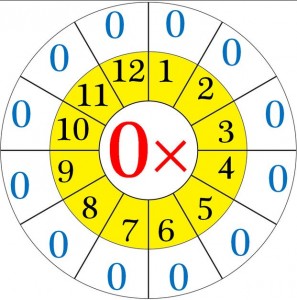Idols always prove useless in the day of calamity. Jeremiah was pointing that out to the Israelites. He knew that a day of reckoning was coming and that their gods of wood and stone would be useless. In Jeremiah 2:28 he writes, “But where are your gods that you made for  yourself? Let them arise, if they can save you, in your time of trouble; for as many as your cities are your gods, O Judah.”Jeremiah is obviously mocking them not only for the emptiness of their deities but for their impotency as well. They can’t do anything. It wasn’t unusual for each town or village to have its own gods. They were everywhere! But it didn’t matter how many there were. As Mackay points out, “But surely because there are so many of them, their numbers will make up for any lack of power on the part of one. However, no matter how long the string of zeros you add or multiply together, the result never changes from zero.”[1]
yourself? Let them arise, if they can save you, in your time of trouble; for as many as your cities are your gods, O Judah.”Jeremiah is obviously mocking them not only for the emptiness of their deities but for their impotency as well. They can’t do anything. It wasn’t unusual for each town or village to have its own gods. They were everywhere! But it didn’t matter how many there were. As Mackay points out, “But surely because there are so many of them, their numbers will make up for any lack of power on the part of one. However, no matter how long the string of zeros you add or multiply together, the result never changes from zero.”[1]
Even so, the Israelites continued to multiply gods in the land. They became less trusting and more trying! They were people of many religious expressions but with no focus on the one true God. They certainly were a nation with Attention Deficit Disorder, unable to focus attention on the important issue at hand. Unfortunately, our nation has its own kind of ADD when it comes to God.
Yet in-spite of the many deities Americans might worship they all prove to be worthless as the zero. No matter how many of them you have, or what you do with them they always result in the same answer: Zero! Dearman says, “What makes idols worthless? The short answer is that they are not divine and they cannot save! Idols are a substitute for the real thing; they may be attractive and appealing to people with heightened religious longings. Idols offer theological rewards, but they cannot save. One of the fascinating (and scary) things about Jeremiah’s day was the fervor with which his contemporaries sought to be religious, as if more religious activities and devotion to more deities would usher in a more secure future.[2] It will not! Actually it will usher in the exact opposite. Such confusion breeds insecurity. To reject the source of “living water” as Jesus put it to the woman at the well thirsty for love and security, “…is to reject the offer of life that only God can grant. This is the same dynamic of Jeremiah’s own day but put in a Christological context.”[3]
[1] John L. Mackay, Jeremiah: An Introduction and Commentary: Chapters 1–20, vol. 1, Mentor Commentaries (Fearn, Ross-shire, Scotland: Mentor, 2004), 162.
[2] J. Andrew Dearman, Jeremiah and Lamentations, The NIV Application Commentary (Grand Rapids, MI: Zondervan Publishing House, 2002), 63.
[3] J. Andrew Dearman, Jeremiah and Lamentations, The NIV Application Commentary (Grand Rapids, MI: Zondervan Publishing House, 2002), 64.